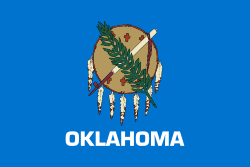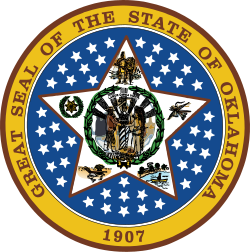53rd Oklahoma Legislature | |
|---|---|
 | |
| Leadership | |
Kris Steele (R) | |
Term: | January 4, 2011-January 8, 2013 |
Composition: | |
The Fifty-third Oklahoma Legislature was the meeting of the legislative branch of the government of Oklahoma, composed of the Senate and the House of Representatives. State legislators met at the Oklahoma State Capitol in Oklahoma City from January 4, 2011, to January 8, 2013, during the first two years of the first administration of Governor Mary Fallin. [1]


